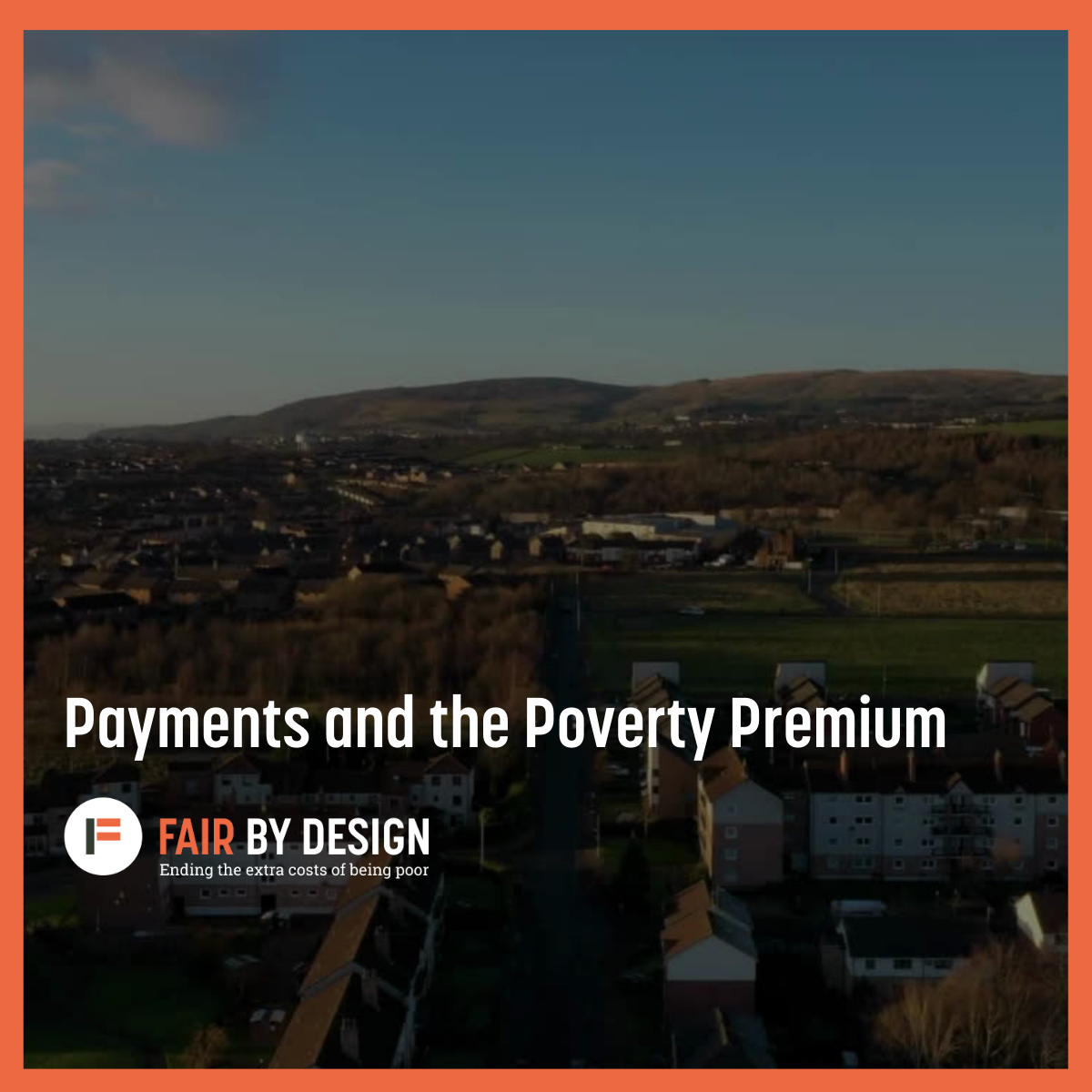A large majority of the UK public wants action to tackle unfairness in provision of bank services, and would back a proposed ‘Fair Banking Act’, new research reveals today. The research, from the newly formed Fair Banking for All coalition, highlights a hidden driver of the cost-of-living crisis, as millions of people across the country are excluded from access to financial services needed for day-to-day living.
Key Findings:
- 68% of people in the UK think it’s unfair that some people get different levels of service from banks because of their status or background
- Nearly 7 in 10 would support a new law that forces banks to report on how equally they provide services to people from different backgrounds or status
Access to vital services such as affordable lending, cash and local bank branches has become an increasing political issue as pressure has grown on personal finances over the last year. With savings depleted by rising costs and inflation, this ‘financial exclusion’ is an issue for millions of people and is experienced in many different ways. For instance, a lack of ethical and affordable lending provision means millions of people are turning to borrowing from very expensive credit providers. One estimate in 2022 put the number of people in England forced to use dangerous illegal lenders like loan sharks at more than a million.
Tracy Prees, 48 is a driving instructor from Birmingham and a mother to a teenage daughter. Just a few years ago she owed £10,000 worth of debt which she has since paid off.
Tracy said “I’ve worked hard over the past years to pay off debt and build my credit score. Why wouldn’t a bank see me as a great customer to have? I could afford repayments on a bank loan if they’d serve me. But banks are black or white in assessing loan applications, looking just at your credit score. Their bar is too high and it means that people like me can’t take a loan or a short term overdraft with all the protections that come with a bank.
“My sister was turned down by a bank and turned to a doorstep lender. I’ve needed to bail her out of that. Luckily, I found non profit social lender Fair for You who go out of their way to lend to people for essential household items if they can see you can afford repayments.”
It’s not just individuals that are affected – people also can’t get the services they need to start, or grow small or medium sized enterprises (SMEs) or social enterprises. That has a significant knock on effect on local economies, given SMEs count for the majority of private sector employment in the UK.
The impact of current financial exclusion mirrors and exacerbates many fault lines in wider UK society, with people of colour finding it more difficult to access banking services including credit, and Black victims of fraud more than twice as likely as white customers to have refund requests denied.
While efforts to tackle financial exclusion have expanded in recent years, with voluntary schemes introduced by Banks, and government initiatives, it continues to grow, exacerbated by the cost of living crisis.
Launched today, the coalition’s policy paper ‘Fair Banking for All: Why the UK needs a Fair Banking Act to tackle financial exclusion’, outlines the evidence of this growing crisis, and what steps can be taken to address it. It proposes a Fair Banking Act that would:
- Require mainstream banking institutions to report on their performance on financial exclusion, through a transparent, publicly available, framework.
- Create a system for clear ratings, showing which banks are doing well and which need to improve, improving market incentives and regulation.
The report is part of the Fair Banking for All Campaign – a coalition of organisations including responsible financial institutions, charities working to tackle financial exclusion, expert organisations, and academics.
Martin Coppack, Director of Fair By Design, said:
“It costs more to be poor. And this is certainly the case when it comes to accessing credit. Small scale solutions are not enough. We need solutions that lift everyone out of paying the poverty premium. Exploring how a Fair Banking Act could tackle this problem is a good place to start“
Kay Polley, Co-Head of Campaigns at charity the Finance Innovation Lab, a member of the Fair Banking for All campaign said:
“Everyone deserves equal access to advice, fair lending, and services like cash or local bank branches, regardless of their background – it’s basic fairness, and the public clearly agrees. It’s shocking that we don’t even require banks to measure the impact of their actions on individuals and communities, particularly those already disadvantaged. We urgently need a Fair Banking Act to change this picture. ”
Dawn Vear, CEO UK Credit Unions Ltd, said: “UK Credit Unions fully support the Fair Banking For All policy paper which aims to establish a Fair Banking Act for the UK. As a trade association for credit unions, we see first hand what financial exclusion means to individuals in our communities. A Fair Banking Act could help to transform the banking and credit needs of the underserved communities, it could build a stronger purpose-driven banking sector to provide services to those who would otherwise be financially excluded. But we need mainstream banking institutions on our side, and that means government needs to act to make that happen”.
Theodora Hadjimichael, CEO of Responsible Finance, said:
“Already tens of thousands of people, small businesses and social enterprises thrive because a community lender like a CDFI gives them the right support. But financial exclusion shackles millions of individuals and businesses. The evidence from elsewhere is clear: a Fair Banking Act would unleash impact across our communities, society and economy by enabling CDFIs and other social purpose lenders to work more effectively with larger retail banks to tackle financial exclusion.”
Notes to Editors
- For more information, please contact:
Kay Polley, Finance Innovation Lab
Tel: 07745 692104
Mark Hemingway, Media Associate, Finance Innovation Lab
Tel: 07775 338656
- The research data is based on a survey carried out by Opinium Research. Total sample size was 2,000 UK adults and the fieldwork was carried out between 15th March – 17th March 2023. The figures have been weighted and are representative of all UK adults (aged 18+).
- The Fair Banking for All Campaign is a coalition of organisations including responsible financial institutions such as credit unions, Community Development Finance Institutions, together with mutual banks, and ethical banks and building societies as well as charities fighting financial exclusion, expert organisations on financial exclusion, and academics. The growing coalition which is launching a public campaign to drive the Act up the political agenda this year, to get politicians of all colours to take action commensurate with the challenge, starting with introducing a Fair Banking Act.
- The Finance Innovation Lab is a UK-based charity working to build a financial system that serves people and planet – one that’s democratic, sustainable, just and resilient. We support the growth of purpose-driven financial institutions, major UK banks, and civil society groups on initiatives to transform the financial system.
- Banks could improve their ratings by expanding fair access to credit and other services, providing better lending and services to SMEs, or by creating partnerships with financial institutions institutions specialised in working with those who are excluded from the mainstream, such as credit unions and Community Development Finance Institutions.
- The call for a Fair Banking Act for the UK is inspired by a similar piece of legislation in the United States- the Community Reinvestment Act. Enacted in 1977, the CRA is attributed with a massive increase in bank funding of financial institutions that specialise in supporting SMEs and lower-income communities, such as credit unions and Community Development Finance Institutions (CDFIs). As an example, in 2020, US banks provided $271 billion to low and moderate income communities, and in 2019, CDFIs and credit unions managed more than $150 billion, including lending to SMEs.
- The report can also be found at https://filab.uk/fba (from Monday 27th March 9.15am)





